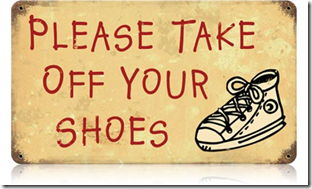Matthew Dicks's Blog, page 429
December 4, 2013
Every death in A Song of Ice and Fire, displayed in rainbow-like horror
I have yet to begin reading the Game of Thrones series (actually called A Song of Fire and Ice). I’m watching it on HBO, but I’m afraid to begin reading the books. The author, George R.R. Martin, is 65 years old and has written five novels in the series since 1996, with six years elapsing between the last two books. He has two more books to write in order to complete the series, reportedly more than 1,000 pages each, and I refuse to start reading until they are finished.
We nearly lost Stephen King in a car accident before he was able to finish the Dark Tower series (an event that ultimately plays a role in one of the final novels in that series). I can’t imagine how I would’ve felt, never knowing the fate of Roland and his ka-tet. It would’ve been devastating.
Similarly, I can’t afford to invest that much time and energy in series of novels of this size without a guarantee of them ever being finished.
I realize that 65 isn’t as old as it once was, but the guy took six years to write the last book. There’s no telling how long these last two books will take.
I look forward to the day that Martin pens his final novel and I can begin reading. Until then, HBO is doing a fine job.
I wish I could credit the person who took the time to do this, but this photograph was sent to me without credit. It’s a stack of the five books currently written in the Song of Ice and Fire series, with a post-it note marking the death of every character.
The HBO series has already taught me not to get too attached to any character, but this seems a little excessive.
That water was inside another person
Did you know that most of the water you drink has already been drunk by somebody else, human or animal, possibly several times over.
I kind of want to tell this to the people who pre-wipe down the treadmill before climbing aboard.
December 3, 2013
Teachers should use their first names. Honorifics confer artificial and meaningless respect. Even worse, they are sexist and demeaning to women.
If it were up to me, my students would call me by my first name. I find the use of last names and titles in education to be an artificial means of respect that doesn’t amount to any actual respect at all.
In my fifteen years of teaching, I have learned that if you’re depending on a title to confer even an ounce of respect from your students, you’re in a hell of a lot of trouble.
I’d much prefer the freedom to use whatever name I choose in my professional life. This has nothing to do with my last name, though I can understand why you might think otherwise. I tend to despise unnecessary formality and meaningless artifice, and in my mind, the use of last names represents both of these things.
Unfortunately, asking my students to use my first name is not a relativistic option for me. I work in a school where every teacher is identified by their last name and in a district where educators and administrators with doctorates almost always use that honorific as well.
I have a friend who possesses a doctorate, yet he has never used the honorific in any part of his personal or professional life. I wasn’t even aware that he possessed a doctorate for years.
I admire him a great deal for this.
Even if I were allowed to have students use my first name (and I suspect that I am not), I’ve also come to understand the hazards of stepping out of line in regards to decades-old, tradition-laden practices in the workplace, and especially in a school.
Breaking this norm would be challenging to say the least. I have colleagues who have never referred to me by my first name. Can you imagine how they might feel if students were suddenly calling me Matt?
Traditions are difficult to break. It can be done, but you need to be prepared to be despised by many for doing so. This is not an issue that I feel strongly enough about to absorb that kind of flack.
At least not yet.
However, I make the argument for using first names whenever anyone will listen, hoping that one day I will build a large enough coalition to affect change. And I specifically make the argument to women, who should be more opposed to the use of last names than me.
When a woman uses her last name in a professional setting, the honorific that is attached to her name is an indicator of her marital status. Unlike men, who enjoy a universal honorific, women are forced to identify themselves based upon their legal relationship to another person, and most often, a man.
Miss if you’re unmarried and young (whatever young is).
Mrs. if you’re married.
Ms. if you are older and unmarried or choosing to be deliberately vague.
And yes, it’s true. Ms. is intended to be the default form of address for women regardless of marital status, but it’s also used by unmarried women who feel they are too old for Miss, thus muddying the waters of what was meant to be a solution to this problem.
Even if Ms. was used exclusively as a neutral default, the existence of the other two female honorifics invariably confuses matters.
Even if a married woman chooses Ms. as a way of keeping her marital status out of her name, she is doomed to a lifetime of slipups from colleagues who know that she is married and who will automatically use Mrs. until corrected and will likely make the same mistake again and again.
Students will make these errors even more often and will likely ask about the decision to use Ms. over Mrs. Despite her attempt to use the the neutral honorific, the woman will invariably be forced to discuss her marital status anyway, probably more often and in greater detail than if she had simply used Mrs.
And the change in last name and honorific when a woman gets married or divorced complicates matters even further.
Ms. becomes Mrs. or vice-versa.
Last names sometimes change but sometimes don’t.
A woman may be divorced but continues to use her ex-husband’s last name.
I have colleagues who have been married for a decade, and yet I still occasionally slip and refer to them with their maiden name.
By the way, the phrase maiden name should also enrage women.
Maiden?
If I were a woman, all of this would make me crazy.
Women should oppose the use of last names in education based solely on the sexist, demeaning way in which marital status pre-determines the way in which students and colleagues will address them. A person’s name should not be dependent upon the woman’s personal life and her legal attachment to a spouse.
It’s that simple.
Even though there are many schools in America where students refer to teacher by their first names, I realize that proposing a shift in a school absent this tradition is a radical one, but I am surprised that women have not complained and attempted to affect this change already.
They should be clamoring for the change.
Stop complimenting students.
In a a piece entitled How to Talk to Little Girls, Lisa Bloom writes:
Teaching girls that their appearance is the first thing you notice tells them that looks are more important than anything. It sets them up for dieting at age 5 and foundation at age 11 and boob jobs at 17 and Botox at 23. As our cultural imperative for girls to be hot 24/7 has become the new normal, American women have become increasingly unhappy. What’s missing? A life of meaning, a life of ideas and reading books and being valued for our thoughts and accomplishments.
I like what Lisa Bloom has to say a lot.
As an elementary school teacher, I have made it my policy for more than a decade to avoid commenting on a student’s physical appearance for similar reasons. A student’s appearance should be the last thing of concern to a teacher, but more importantly, these comments, even when positive, can be damaging and hurtful to kids.
A few years ago, just prior to a performance by my school’s choir, I watched a teacher compliment a young man on his appearance. The boy was wearing an impeccable suit and tie, and even his dress shoes gleamed in the dull glow of the hallway’s fluorescent lighting.
The teacher doing the complimenting was aware of my “no commenting on physical appearance” policy, and after praising the young man, she turned to me and asked how her complimentary words could ever be construed as hurtful to the child.
I pointed out to the teacher that while the young man was probably feeling great about her compliment, the boys to his left and right, who were not wearing suits and had not received a similar compliment, and who were perhaps from families who could not afford suits and ties and gleaming dress shoes, might be feeling very differently as they take the stage.
Therein lies just one of the dangers.
As one who grew up in relative poverty, I know how it feels to hear your classmates and friends receive compliments for their appearance while you do not.
Worse, I know how it feels to receive the compensatory compliment from a teacher who suddenly realizes that he or she has probably made you feel lousy while gushing over the appearance of your best friend.
There are simply too many other things worth complimenting for any educator to be discussing physical appearance. Effort, sportsmanship, empathy, helpfulness, rigor, respect, friendship, grit and charity are just some of the areas in which teachers can offer meaningful, productive comments.
Not to mention that a student’s choice of clothing and haircut, especially in elementary school, are often not entirely within the child’s control. Oftentimes a teacher’s compliment about appearance amounts to little more than a comment on how the student’s parent chose to send their child to school, making the words even less meaningful.
So more than ten years ago, I decided to stop commenting on students’ physical appearance, and I have held this line ever since.
It hasn’t been easy.
A girl walks into my class with a new haircut and asks me what I think.
I say, “I don’t know about your hair, but I love the way you use that brain underneath your hair to solve math problems.”
A boy walks into class with a new shirt promoting his favorite basketball team and asks me if I like it.
“I didn’t really notice the jersey,” I say. “But I noticed the way you played kickball yesterday. You were a great sport. Good job.”
Sometimes these exchanges are a little awkward, and sometimes the kids think I’m a little crazy, but I would choose awkward and crazy over the alternative.
In order to counter the furrowed brows and confused stares, I have made it a habit to tell my students about my policy, and in ten years, I have never had a student disagree with my rationale or debate my decision. In fact, almost every student responds positively to my policy.
Nevertheless, I have been told by many educators and parents that my policy is unrealistic and unnecessary. They typically bolster their arguments with statements like, “My teachers complimented me when I was a kid and we survived” and “These kids are going to hear compliments for the rest of their lives, so there’s no reason for us to be sheltering them now.”
These types of arguments boil down to this:
If it worked for me, it should work for them.
These are people who did not wear the same pair of sneakers through three New England winters while in middle school.
There are people who did not receive the majority of their childhood wardrobe from their much older, much larger cousin.
These are people who are unable to place themselves in the shoes of a student whose shoes will never gleam in the dull, florescent light of a hallway.
These are people who believe that you do not need to do what is right if everyone around you is doing otherwise.
These are people who do not believe that one person can make a difference.
From tiny acorns mighty oaks grow. Someone needs to be the acorn. As awkward and crazy and divergent as that acorn may seem, someone must take the first stand.
Don’t tell me that my policy is foolish because no one else adheres to it.
Don’t tell me that my policy is useless because everyone else in that child’s life will comment on physical appearance.
Change often begins with a few lone voices, and it turns out that I am not alone.
In a piece entitled One Hundred Things Restaurant Staffers Should Never Do, Bruce Buschel writes:
42. Do not compliment a guest’s attire or hairdo or makeup. You are insulting someone else.
This is a man who understands the inherent hazard of a compliment, particularly when it addresses physical appearance.
In the end, regardless of whether or not you believe that physical appearance should be a matter of discussion with students, there are far too many more important things to comment on during the course of a school day for me to waste an ounce of breath or a second of time on a student’s dress or hair style or shoes.
I am too busy on a minute by minute basis helping children attain the skills they need to be successful in the future to waste a single moment on the way they look.
Every educator should be doing the same.
My YouTube channel
A friend suggested that I separate the videos of my adorable children from the videos of my storytelling or speaking performances.
I believe he said something like:
“I’d subscribe to your channel because I’d love to see your storytelling updates, but I really can’t watch another video of your son and daughter hugging each other. Enough already.”
Fair enough. Smart, even.
And a little mean.
So I’ve separated things out. If you’d like to follow my storytelling and speaking exploits, you can subscribe to my professional, child-free YouTube channel here. It contains many of the stories that I have told for The Moth over the past two years, with more content to follow.
Enjoy.
December 2, 2013
Flying car or self-driving car?
Here are the rules:
The self-driving car is self explanatory. It’s the finished version of the self-driving car that Google is currently developing. It drives the car wherever you ask it to go. You sit inside and do whatever the hell you want.
The flying car travels at regular car speeds but does not need to adhere to the limitations of roads. It can fly over traffic, rivers, forests and anything else that might be in the way, but you must be actively driving it at all times.
Which do you choose and why?
I believe that your answer says a lot about you.
I will give you my choice and my analysis of both choices tomorrow.
Speak Up stories wanted
As 2014 approaches, Elysha and I are in the process of preparing lineups for our Speak Up shows for the new year. If you have a story that you’d like to tell on a Speak Up stage, we’d love for you to pitch it to us.
We are currently planning for shows in January, March and May. The themes for these shows are as follows:
January 18: Travel
March (date TBA): Law and Order
May (date TBA): Bad Romance
If you would like to pitch us a story idea for an upcoming show, please send us an email with a summary of your story (the more detail, the better), a brief bio and your contact information to speakupstorytelling@gmail.com.
We hope to have the lineup for the January show finalized within the next two weeks, but there are still spots available, so if you have a great travel story that you’d like to tell, don’t delay. Write your pitch and send it to us.
As you prepare pitch, a few things to keep in mind:
The length of your story should be 6 minutes or less.
Your story should have a beginning, a middle and an end.
Your story should be true.
Your story should be an actual story. It should reflect events in your life that ultimately caused you to change in some meaningful way as a person for better or worse. We are not looking for inspirational speeches, a series of strung-together anecdotes or lectures.
If you’ve never told a story before and want some help, I’ve included a good example of a the kind of story that we are looking for below. It’s a story told at The Moth by Micaela Blei, who performed for Speak Up back in November.
Elysha and I work with our storytellers to help revise and refine your stories, so if you’re nervous or uncertain, have no fear. Even the most experienced storytellers are nervous before taking the stage. Elysha and I will ensure that you are well prepared and as confident as you can be before your big night
Thanks! We hope to see you at Speak Up in January for what promises to be a great show!
December 1, 2013
I hate Paul Mitchell, and I think you should, too. Please join me in my burning hatred for this company. It is deserved and necessary.
I had my hair cut yesterday. As I entered the salon, I saw this product on the shelf by the door. Row after row of it.
The contents inside these containers may make your hair lustrous and shiny, but that is irrelevant.
This is a terrible product. The message on this product is disgusting. I honestly can’t believe that it exists, and I can’t believe that women allow it to exist by continuing to purchase it.
The implications of the branding are clear:
Skinny is beautiful. “Skinny” is a compliment. You should feel good if someone tells you that you look skinny. You should be skinny or trying to be skinny.
I hate this so much.
There were so many other words that Paul Mitchell could’ve chosen for this product.
You look beautiful today.
You look pretty today.
You look strong today.
You look confident today.
You look amazing today.
You look perfect today.
Instead, the advertisers at Paul Mitchell went with skinny.
I hate this company so much for this decision. I hope you will choose to hate them with me.
I never, ever want my daughter to see this product. No little girl should ever see this product. No woman should see a message like this on the shelf.
There are many, many ways to be beautiful in this world, and it occurs to me that skinny isn’t anywhere near the top of the list.
Paul Mitchell would seem to disagree, and I hate them for it.
Please stop purchasing product. Please ask your friends and relatives to stop purchasing this product. If given this product as a gift this holiday season, return it immediately.
If you want to make your opinion heard, contact Paul Mitchell’s customer service line at 800.793.8790. Their hours are Monday through Friday from 11:00-7:00.
I will be calling tomorrow. Join me.
Resolution update: November
In an effort to hold myself accountable, I post the progress of my yearly goals at the end of each month on this blog.
I appear to have failed to report my October results, so clearly I’m not doing well.
The following are the results through November.
1. Don’t die.
Solidly on track to meet this goal.
2. Lose ten pounds.
Still down ten pounds for the year.
I am attempting to lose another ten pounds during the second half of 2013 but it’s not looking good.
3. Do at least 100 push-ups and 100 sit-ups five days a day. Also complete at least two two-minute planks five days per week.
Done.
4. Launch at least one podcast.
We record our first show on Monday.
5. Practice the flute for at least an hour a week.
I still can’t find my flute. It was an expensive flute. I am upset.
6. Complete my fifth novel before the Ides of March.
7. Complete my sixth novel.
The first 60,000 words of my sixth novel are in the hands of my agent while I finish revisions of my fifth novel. It will sell before I have technically finished it, making this a nearly completed goal in my mind.
8. Sell one children’s book to a publisher.
I will send at least one of the manuscripts to my agent by the end of December. I said last month and the month before that and the month before that and the month before that.
This means that I will not be able to meet this goal by the end of the year, which is disappointing.
9. Complete a book proposal for my memoir.
The memoir of my season of golf is in the hands of my agent, and she loves it. Happy days!
The first five chapters of my originally planned memoir are also written and in the hands of my agent, too.
10. Complete at least twelve blog posts on my brother and sister blog.
No posts published in November. We remain one post away from reaching our goal.
11. Become certified to teach high school English by completing two required classes.
I remain one class and $50 away from achieving certification. Since I have no intention of leaving my elementary school within the next two years, I do not plan on taking this course in 2013. The summer of 2014 looks likely.
12. Publish at least one Op-Ed in a newspaper.
I have published three pieces in the Huffington Post and two pieces in Beyond the Margins. I’ve had several pieces rejected from The Hartford Courant and The New York Times.
Not sure if I’m going to credit myself for completion of this goal yet.
13. Attend at least eight Moth events with the intention of telling a story.
I competed in one Moth StorySLAM in November and a Mainstage show in October, bringing my total Moth events in 2013 to fourteen. I placed first in my November StorySLAM, running my consecutive winning streak to six.
I’m been exceptionally lucky.
14. Locate a playhouse to serve as the next venue for The Clowns.
The script, the score and the soundtrack remain in the hands of a New York City playhouse. We will probably not hear anything by the end of the year.
On a side note, my writing partner has already found a performance opportunity for our next show, which isn’t actually written yet.
15. Give yoga an honest try.
No progress.
16. Meditate for at least five minutes every day.
I missed five days in November because of mornings when my son awoke before I had a chance to meditate.
17. De-clutter the garage.
I have been told that the remaining furniture will be removed soon. I don’t believe it, so I’ll be removing it myself soon.
18. De-clutter the basement.
Work continues. There is a lot of stuff down there.
19. De-clutter the shed
Work ceased on this project in August. I have not touched it since, and it’s too damn cold to finish the job.
20. Reduce the amount of soda I am drinking by 50%.
In an effort to reduce my soda intake, I allow myself two 8-ounce bottles of Diet Coke per day at work. This is a considerable reduction but in no way brings me close to my 50% target.
21. Try at least one new dish per month, even if it contains ingredients that I wouldn’t normally consider palatable.
I tried several new foods in November during my class’s Thanksgiving feast, including foods from Poland, the Middle East, Chile and more. I actually like it all.
22. Conduct the ninth No-Longer-Annual A-Mattzing Race in 2013.
No progress.
23. Post my progress in terms of these resolutions on this blog on the first day of every month.
I missed October altogether. I don’t know how that happened. I’m on time for this month.
November 30, 2013
I’m not the only critic of the “Shoes off” policy. There are many other people out there just as judgmental and jerky as me.
I’ve taken some abuse for my position about removing shoes prior to entering a home. Criticism. Castigation. Metaphorical crucifixion, even.
If you’re not familiar, my position is this:
I readily remove my shoes without complaint when asked by the owner of a home, but I think the rule is stupid and rude. I would never say as much unless asked directly. When asked my opinion, however, I will always answer honestly.
In contrast to my angry detractors, I’ve also received quite a bit of support for my position, by at least a three to one margin.
Most people who responded to my post on the subject agree with me, but those messages of support tend to be shorter and less emotionally charged than those who disagree.
This is unfortunately the nature of the world.
Recently, two people forwarded me similar pieces on the subject.
The Quick and Dirty Network’s podcast host, Mr. Manners, essentially feels the same way I do about the request to remove one’s shoes. While he doesn’t find the practice as annoying as I do and believes that guests should adhere to the host’s request, he adds:
“If you are going to have people over at your house, and you plan on requesting that people remove their shoes when entering, you have to first understand it will make some people uncomfortable.”
Exactly. I’ll comply with your request and will smile while doing so, but inside, I will be annoyed. Others will feel the same. Simply acknowledge this. Accept the fact that your request, when made in the United States, is not common or expected.
There’s nothing wrong with being different, as long as you don’t try to pretend that you’re not.
In a post on Rage Against the Minivan, writer Jessica Gotlieb is quoted as saying:
“I’m disgusted when people want me to take my shoes off in their home. OK, I get it for upstairs areas or bedrooms or even if you’re Japanese. But if you’re my American friend who just wants a clean floor, forget about it. It’s a power play and no, you don’t get to undress me. My shoes are there to keep me comfortable, cute and free of your foot fungus.”
The writer of the post expresses a similar sentiment:
I get that some people have germ issues, but it’s still rattling when requested of me as I walk into someone else’s house. Honestly? I have dry, old-lady feet and cracked heels. Sometimes I’ve chosen random socks to go under my boots because I didn’t think they’ve been seen. Sometimes I’m between pedicures. Sometimes my heels are dirty from chasing a kid around the block in my bare feet. My feet aren’t always “show-ready.” While other people find it to me more clean, I think walking around someone’s house in my bare feet is kinda gross.
I cite these articles as a means of demonstrating that I’m not the intolerant, angry lunatic that some people believed me to be when I expressed similar feelings.
At least I’m not the only intolerant, angry lunatic.
I’m more than willing to remove my shoes when requested. I’m more than willing to keep my opinions to myself. Just because I think your rule is rude and stupid doesn’t mean that I think you are rude and stupid.
It’s okay. We simply disagree on a footwear issue. It’s not the end of the world.
What annoys me most, however, is the person who thinks that asking guests to remove their shoes is normal, commonplace and even expected.
It’s none of these things.
Accept your outlier status. Embrace it. I’m forced to do so all the time.














